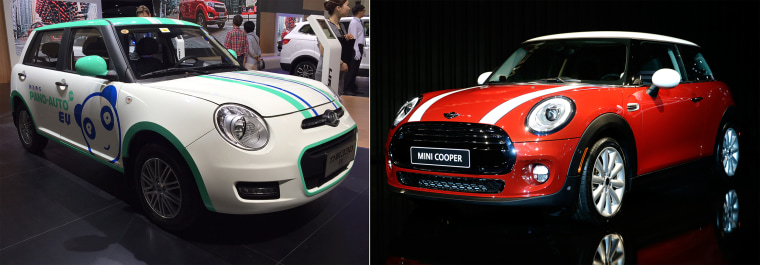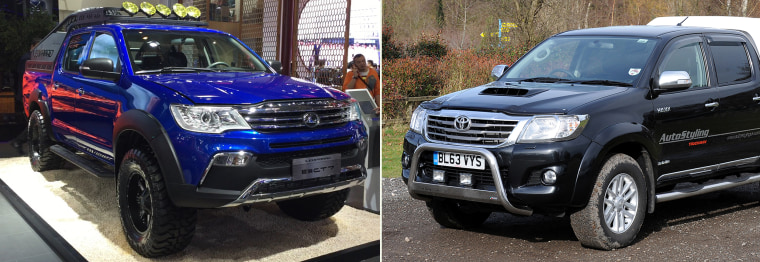BEIJING — Consumers ambling through China’s largest auto show might be forgiven for occasional flashes of déjà vu.
Most of the display stages in the exhibition halls look the same. The young women staffing them are dressed in matching outfits. And many of the designs from Chinese carmakers bear an uncanny resemblance to vehicles made by foreign companies.

Some of the Chinese firms' vehicles appear to pay homage to others made by the likes of BMW, Ford, and Audi.
One of the more infamous examples is the Landwind X7 from Jiangling Motors Co. — a deadringer for the Range Rover Evoque. At $21,000 it retails for around one-third of the real deal's price.
When the X7 was unveiled last year, the head of Jaguar Land Rover blasted Chinese “copy-and-paste” jobs.
Now, the company admits that is part of being a player in the country.
“I think we have to accept that Landwind is in the marketplace,” said Gordon Snoddy, a vice-president with Jaguar Land Rover. “We are the authentic premier SUV brand that has been around for a long period of time. I think imitation is the best form of flattery, isn’t it?”
The Landwind-Evoque situation highlights how competitive it has become in the race for a share of the world’s biggest auto market.
While car sales are expected to decline this year in tandem with a slowdown in China’s economy, the country is trying to build a global automotive industry. Chinese car firms like ChangAn, BYD and Geely typically offer three-year warranties and much cheaper prices.
A Changfeng Leopaard CT5 starts at around $18,500. It resembles a Toyota Hilux, which retails from around $30,000.

While foreign brands remain dominant, the fakes' lower price points have proved popular with drivers. Audi tends to be the car of choice for the powerful and well-connected while Volkswagen is the biggest seller.
Overall, an estimated 25 million vehicles are expected to roll onto the roads this year, and the ownership market is far from saturated. There are 13 cars per every 100 people in China, according to government statistics, compared to 80 per 100 people in the United States.
China is also expected to see a surge in the number of electric and hybrid cars being offered by manufacturers, as cities like Beijing struggle to control pollution.
The capital already enforces roadspace rationing and bans cars from being used on certain days in order to reduce emissions. A mapping company did a survey earlier this year and found that the average commuter in Beijing spends 32 minutes of every hour stuck in traffic.
